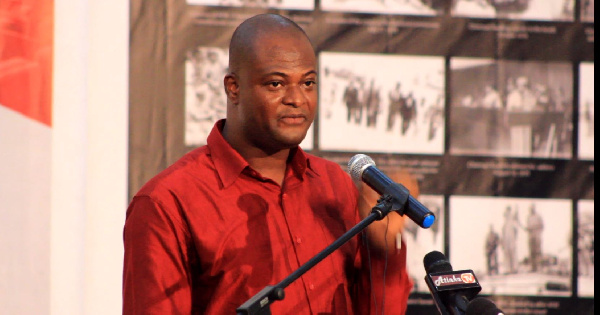The Dean of the University of Ghana School of Law, Professor Raymond Akongburo Atuguba, believes many of Ghana’s laws are outmoded, making it difficult for people to adhere to ethical principles in the corporate world, particularly the banking sector.
“Our laws are not in tune with the times; how do you determine ethics with such a legal framework?” he questioned.
Speaking at the GCB Platinum Thought Leadership Conference in Accra last Friday, Prof. Atuguba said the country still had about 10 English laws in its statutes passed between 1539 and 1863.
He said since the laws, including the Bills of Exchange Act, 1961 (ACT 55), were passed years ago, there had been significant developments which required that new laws were passed to align with current trends but that had not been done.
His presentation was on the topic: “Ethics, financial conduct and the political economy in Ghana and other emerging markets”.
He defined ethics as an extension of the law, hence it would be difficult for people to abide by the ethical principles that govern businesses.
The one-day conference brought together bankers and subject matter experts from the fields of finance and economics.
Present at the event were the President of the Council of Foreign Relations Ghana, Ambassador D. K. Osei; a former Vice-Chancellor of the University of Ghana, Prof. Ernest Aryeetey; the Head of the Economics Department of the University of Ghana, Prof. William Baah-Boateng, and the former Country Senior Partner of PwC Ghana, Felix Addo.
It featured discussions and presentations on various topics in the banking and finance sectors.
Prof. Atuguba mentioned the Public Procurement Act, 2003 (ACT 663), as one of the laws which was expensive to obey.
“The cost of obeying the Act surpasses the benefits the law is supposed to bring”, he said.
He added that it took the Supreme Court to declare portions of the Companies Act, 2019 (ACT 992) unconstitutional.
A seasoned banking professional with Growth and Investment Partners, Albert Kobina Essien, said challenges in procurement and the use of credits which led to the financial sector clean-up persisted in the banking sector.
“For most of the indigenous banks, we still have a challenge of proper credit delivery,” he said.
Latest Stories
-
GIPC encourages diplomats to champion Ghana’s new investment drive
13 minutes -
Sage Poetry to debut with Ghanaian poetic excellence
28 minutes -
Helicopter tragedy aftermath: Mahama has resolved to ruthlessly deal with ‘galamsey’ – Ablakwa
35 minutes -
Photos: Ag. Chief Justice signs Book of Condolence for victims of tragic helicopter crash
37 minutes -
Jerome Otchere heads Presbyterian Church of Ghana PR Unit
1 hour -
Deputy National DRIP coordinator warns against misuse of DRIP equipment
2 hours -
Ghana seeks help from U.S. forensic experts to unravel helicopter crash
2 hours -
GFA President Kurt Okuraku expresses gratitude to MTN for investing in Ghanaian youth through football
2 hours -
Fact-check: Sir-Obama Pokuase’s viral gun photo not linked to Ghana – It’s a 16-year-old stock image
2 hours -
Ghana Embassy in Washington holds memorial service for helicopter crash victims
2 hours -
Julius Debrah closes African Political Parties Summit 2025
2 hours -
Pro-NPP group challenges Mireku Duker’s denial of presidential ambition, says audio is authentic
2 hours -
GJA sets August 19 for rerun of Ashanti Regional Chairman Election
2 hours -
CDD backs election observers’ call for EC appointment overhaul, presidential age limit
2 hours -
Buem Traditional Council joins nation in mourning, honours victims of helicopter crash
2 hours

